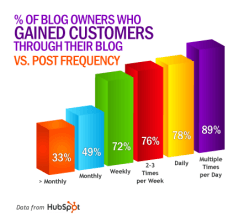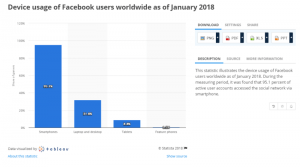All things being equal, relationships win. All things being unequal, relationships still win. Your job in sales is to make all things unequal. You need to create a preference for you as the consultative salesperson that your dream client prefers to buy from and work with. You also need to create a preference for your company and your solution.
No matter what you may have read to the contrary, relationships matter in sales. In fact, they matter now more than ever.
The markets you work in are more crowded, and you compete against more and more companies every day. It is more difficult to gain your dream client’s time, and it is increasingly difficult to differentiate your offering. Many of your prospects are suffering from post traumatic recessionary stress disorder, and they are afraid to upset the status quo, afraid to change, and afraid to invest more money.
If you had the choice of having deep relationships built on trust or not having them, you’d choose to have the relationships every time. No one ever disagrees with this idea. But this idea is honored more in the breach than in the observance.
Let’s look at what sales relationships are made up of, and how data can help you identify, build, and maintain relationships so that you have an absolute right to your dream client’s business.
Identifying Relationships
A dream client is a client for whom you can create breathtaking, jaw dropping, earth shattering value, and who will see so much value in what you do they will gladly pay you a premium over your competitor. If you don’t know who your dream client is, you are not going to have an easy time nurturing the sales relationships you need.
The only way to discover this is by tracking who your current (and lost!) clients are, when you communicated, what insights you shared, and what results that produced. Only by consistently capturing and consulting this information will you be able to identify your dream client and know which sales relationships will provide the most reciprocal value and should be pursued.
Building Relationships
No prospect wants to teach you the things about their business that you can easily read on their web page. Nor do they want to teach what is important to them and what they prefer over and over again. And even though you may not know they are doing so, they are keeping track of your commitments and whether you can be counted on to keep them.
Each interaction you have with your dream clients or paying clients generates data. You’ve likely never had this thought, that each interaction creates data. That data has great value. It is increasingly valuable over time.

What did your dream client say was their biggest challenge? Who did she mention you should make sure to meet next time you visit? What was her daughter’s name, the one who just had a birthday? What were her preferences in how she’d like the proposal delivered?
You need to capture the data from each interaction with each of the stakeholders to whom you sell. This is how you get a holistic view of prospects, their companies, and what you will need to do to meet their needs.
Maintaining Relationships
Relationships are expensive. To develop and maintain them, you have to invest your time. You also have to invest your energy, including your emotional energy. You also need to know where you are in the relationship. Absence does not make the heart grow fonder; absence makes the heart go wander.
As a husband, I know that sending my wife flowers on our anniversary isn’t going to score me any points at all. It’s expected. Sending flowers for no reason whatsoever, however, scores big points.
Without a record of your communication and the content of that interaction, you are susceptible to losing relationships—and business—through the number one mistake when it comes to sales relationships: neglect.
When was the last time you called your most important contact at your most important client? How about your most important dream client? How long has it been since you met with the stakeholder who was an obstacle to your deal, but who you promised you’d check up on after you installed?
Your brain is for thinking and solving problems, not remembering things. Your outboard brains are for remembering things. Your calendar is one of them. So is your task list. And so is the software you use to keep track of your commercial relationships and communications.
Focusing on Sales Relationships
All things being equal relationships win. If you are going to invest the time to make things unequal, make sure you capture the data to ensure you are impeccable and that you have the information you need to do so.
For more tips on how to effectively capture and leverage your sales data, download the new eBook, Shedding Light on Dark Data: How to Unearth Actionable Sales Insights.
Business & Finance Articles on Business 2 Community(78)
Report Post





